The Patrician
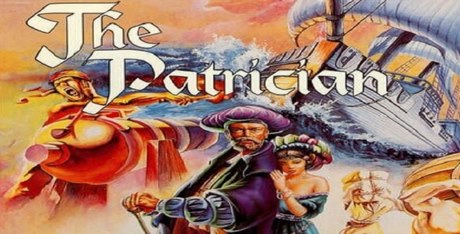
| a game by | Triptychon Software |
| Platform: | PC (1992) |
| User Rating: | 8.7/10 - 3 votes |
| Rate this game: | |
| See also: | Download Strategy Games, Merchant Games, Patrician Series |
Everybodys doing it. Theyre all at it. Every software house in the country is rushing to join in and grab a piece of the action. What on earth is he talking about? I hear you saying. I am talking, chaps and chapesses, about how everyone who has ever released a game that has been even mildly successful on other platforms over the last few years, seems to be dragging it out of the cupboard, blowing the dust off it and whacking it onto a shiny new CD and then proudly announcing that it has been enhanced. My idea of an enhancement, and I expect yours also, is totally at odds with that of the aforementioned enhancement announcers. Who cares if the music has been slightly improved? Sod the extra occasional animations. All we want to know is, is the gameplay any better? Invariably, the answer is no. All you get from your average cd conversion is a few extra tunes and sound effects. So what has The Patrician got to offer to justify the transition to cd other than saving you a bit of space on your hard drive?
The song remains the same (almost)
The musics better, theres more sound effects, extra animations (theres lots of extra seagulls flying about and stuff), and a new animated intro with a strange looking dude singing a very short ship-type song. Big deal, you might think. Well, its not exactly a big deal but, funnily enough, in The Patrician's case, the stereo music soundtrack and extra animations do enhance the gameplay to some degree. It just feels better. Okay, the gameplays basically the same. Its still all about buying ships, sailing all over the place buying and selling commodities for a profit and generally striving to become the wealthiest and most powerful dude around - with more atmosphere.
To buy or not to buy
So, were back to where we started. Has it been significantly enhanced, or has it not? Should you rush out and get it or are the enhancement announcers trying to pull the wool over your eyes and having a right laugh again? The answer to these questions depends on whether you have the original game or not. If you have, the answer is no - the cd version is better, but not that much better. If you haven't the answer is yes. As strategy/trading games go, The Patrician is one of the better ones. The graphics are well above average, the interface is simple and easy to use, theres always lots of things to do at any one time to keep you busy and, most importantly, the gameplay is addictive. Its not the game to go for if you like a little bit of action to liven up your buying and selling activities, but if strategy is more your thing, you won't be disappointed. I liked The Patrician in its original form and played it for ages. The cd version has rekindled my interest and I will probably end up playing it for ages - again.
Download The Patrician

System requirements:
- PC compatible
- Operating systems: Windows 10/Windows 8/Windows 7/2000/Vista/WinXP
Game Reviews
The Patrician is essentially a trading game, casting you as a merchant in the cities of the Hanseatic League of 14th century northern Europe and leaving you to your own devices. It's up to you to then trade, lie, cheat and bribe your way to the top (try to imagine Howard's Way with German names and funny hats). You start the game with a small ship, an even smaller sum of money and a rather fetching hat - unless you choose to play a quick game, in which case you find yourself in possession of two ships, a lot more money and a more streamlined hat.
Well, actually I 'imagined' the hats. You have to do a fair amount of 'imagining' in this, since you see neither your own face nor the faces of anyone else in the game, except -briefly - for a hunchbacked marriage-broker, your chosen partner and the all-important moneylender.
Visually, the game... well, it fails to rivet. It's played through a series of still screens: the harbour, the inside of your office, the town square and so on. Click one such area in order to pursue vast riches.
Although they're all very nicely drawn and coloured-in and stuffed to the gills with perspective, they are essentially static, and rather dull after a while (about 40 seconds, actually). Alright, so the odd seagull flies by (not when you're in the office, you understand) and some of the people in the town square seem to suffer from Parkinson's disease, but it's still not what you'd call visually arresting.
The sound is bearable with a soundcard but, as you can imagine it's not too extensive - a choice of endless twittering, but not especially aggravating, music or spot sound effects: hammering in the shipyard, crowd noises in the square, seagulls shouting; that sort of stuff.
But what's the point?
The point of the game is, initially, to amass wealth by trading goods, then to improve your social standing in your chosen home town until you are voted mayor. Once you've managed that, your goal in life will be to become the Alderman of the entire Hanseatic League (the 14th century equivalent of Graeme Kelly). Unfortunately, everyone else in the game, whether human (up to four can play at once) or computer, is out to do the same thing - and they don't care how they go about it.
To help you on your way, there are advantageous marriages to be had, guilds to join and parties to be thrown. To hinder you, there are pirates, annoying kings and blackmailers. It all sounds very exciting, doesn't it? Sort of.
The trading side of The Patrician is supposed to be governed by market forces, seasonal alterations in pricing, historical fact and other such grown-up considerations. In practice, it sometimes smacks of a random, or even a downright spoilsport approach. There are 18 varieties of goods to trade in, from basics like corn, fish oil and wood, to luxury items like furs and peppers. Each time you go to a new port, you painstakingly list the prices, note the rough amount available in the town, and so on.
This will be your general reference table. It is historically accurate - at the time the game is set, London was the place to go for wool, Riga for corn, Toensberg for fish oil. And, of course, there are places in which these commodities were expensive. The trick is to match the ports, don't constantly use a certain route (thus flooding the market), watch out for news (like a big spice delivery to London from Spain) and away you go. This is where it can be extremely irritating.
Let's take an example
Let's take, for example, the delivery of spices to London. Peppers, usually for sale at around 1100 thaler, aren't worth buying, because nobody will give you more than about 800 for them. Suddenly they're available in London for 475 thaler. Off you dash to buy as much as you can. You sail to one of the ports where you know you should get a good price for the peppers, only to find that the price they're prepared to give you has dropped to 550 thaler. It's the same when you try another port. It can't be market forces because the town doesn't have any peppers at all, and there's no way 'seasonal variations' account for it.
Fluctuations in price are acceptable, but when you plan your route to take wine from somewhere that pays 380 thaler to somewhere that pays 850, only to find the price they'll give you has dropped by around 400, it's a bit of a wind-up.
Many 'events' are sent to try you, too. I had a reasonable little thing going with the Norwegian town of Toensberg. I'd set up warehouses stocked with fish oil and hemp, taken on locals and was beginning to get special deals there. Then the bloody King of Norway steamed in and stole all my property - presumably chanting 'Maggie Thatcher, Winston Churchill, etc. Your boys took one hell of a beating...' as he did so. Almost immediately afterwards a fire destroyed Hamburg, along with all my property there, my ship was attacked and gutted by pirates at sea, and I found myself with almost nothing again. To make matters worse, my wife was still alive.
The Shipyard
The shipyard is where it all happens on the transportation front. Assuming you've gone for the full game option, you'll own one small ship at the start of the game: a kraier. The condition of the ship can vary at the start, and it's worth going through the re-start procedures a couple of times until you get one in 'excellent' condition.
The more you use the ship, the more it wears, and if you're not careful you'll wreck it completely. The man on the right with the clipboard is the boss; he tells you (honestly) what condition the ship is in. It's best to check its condition at the shipyard after every few journeys and not to load it fully, to save on wear and tear.
Leave it too long between repairs and the space in the hold will be taken up by support beams, reducing its capacity. This will obviously cost you money in the long run.
The wreck on the left is where you click to get the ship repaired. The devious swines who do the repairs are out to rip you off - it's worth getting lots of different cost estimates, until a reasonably cheap one pops up. This can take several attempts.
In the middle, the ship on the stocks is where you click to order your dream ship. You'll see the tech specs for the ship, and the cost. Usually you'll also see a list of materials needed to build the ship - something along the lines of eight million tons of hemp, a small ocean's worth of pitch, and the entire contents of Dresden's crockery output for five years. Assuming this doesn't put you off, it's up to you to sail around Europe collecting the necessaries, keep them in storage (so some other git doesn't nick them and get his own ship built) and, once you've collected all that you'll need, sell them to the town and order your ship.
To the trading side!
The trading side of the game is gradually supposed to be overtaken by the intrigue: turn down Marilyn Monroe and marry an ugly widow (she's usually rich), then move to a town with the Plague in the hope that she dies and you can marry again. Or bribe council members in the hope that they'll improve your standing in the town. Get lots of food in and throw parties to woo the townsfolk. Hire employees for the same reason. Unfortunately it's all rather a token attempt, and it doesn't quite work.
Give a feast and you'll find yourself being blackmailed for 'indulging in wild night-time activities' and 'leading an immoral life'. Bribe an official and you'll be blackmailed for that. The blackmailer's demands keep increasing, but the fines in court far outweigh the money spent in the initial offence. It's totally up to you what you do, but it's all fairly basic.
I'd have preferred to be able to take huge loans from people and simply try to avoid their town for the rest of the game, rather than them collecting from my central fund automatically; they could send the boys round, there could be a fight, I could end up in traction if I lost - you know, a bit more real interaction. I should be able to hire nasty gits to protect me. Everything could have a little more consequence, and a little less of the 'random event' factor.
Anyway, back to this. Overall, although at first it's pretty engrossing, as you pay off your initial debts, save up for new ships, work out routes that should yield reasonable profits, and keep up with events by way of the rolling 'news scroll', and try to improve your lot by devious means, it can soon turn into a war of attrition. You find yourself playing because you refuse to give in to the bastard thing, rather than because you love it.
I keep going back to it, but only in the same irritated way I keep going back to an insect bite. Although without the pus.
Moneylenders
This evil child of Thatcherism - well, alright, a little bit earlier than that - is your only route to starting out in business. He's more of a moneylending agent than a moneylender - he merely passes on the available loans to you, and informs you of those who are looking for financial assistance, rather than running the risk of losing his personal wedge.
You don't have any control over the interest rates offered to you; it's simply a matter of going to the moneylender, checking over and over again what's on offer and at what interest rate, refusing the more outlandish ones and waiting in the hope of finding something a little less murderous.
Strangely, when you're offering money for other people to borrow, you don't set the interest rates yourself - people go to the moneylender and say how much they want to borrow and at what rate of interest.
You'll notice a marked contrast between the rates of interest charged to you and the rates you're allowed to charge. A typical offer to you will be something along the lines of: 'A craftsman offers 250 thaler at an interest rate of 56%, falling due in 200 days.' Whereas when someone comes to you for money, it's not unusual to see, 'A craftsman asks for 98,968 thaler at an interest rate of 3%, falling due in 352 days,' or even 'A craftsman asks for 157,968 thaler at an interest rate of 0%, falling due in 456 days.'
That seems fair. The worst bit is that you have to pay the complete interest on the sum, even if you pay it back in advance.
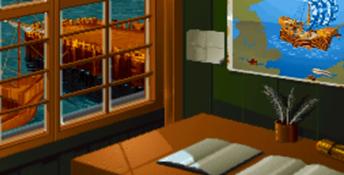
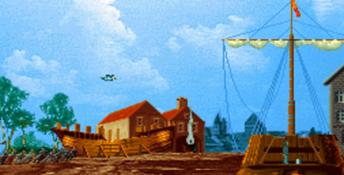
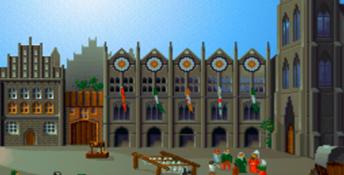

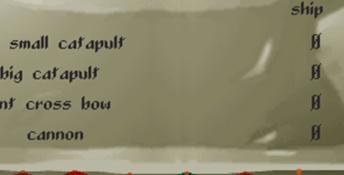
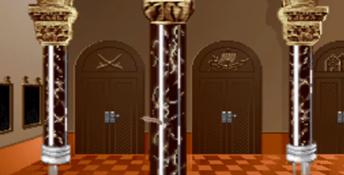
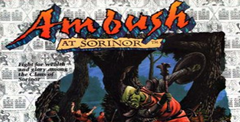 Ambush At Sorinor
Ambush At Sorinor
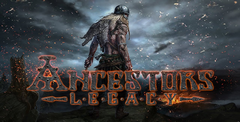 Ancestors: Legacy
Ancestors: Legacy
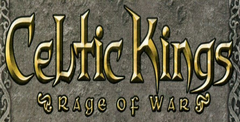 Celtic Kings: Rage of War
Celtic Kings: Rage of War Endless Space 2
Endless Space 2
 Fields Of Fire
Fields Of Fire
 Fields Of Glory
Fields Of Glory
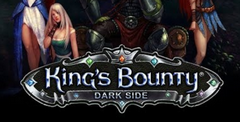 Kings Bounty Dark Side
Kings Bounty Dark Side
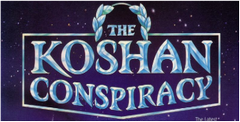 The Koshan Conspiracy
The Koshan Conspiracy